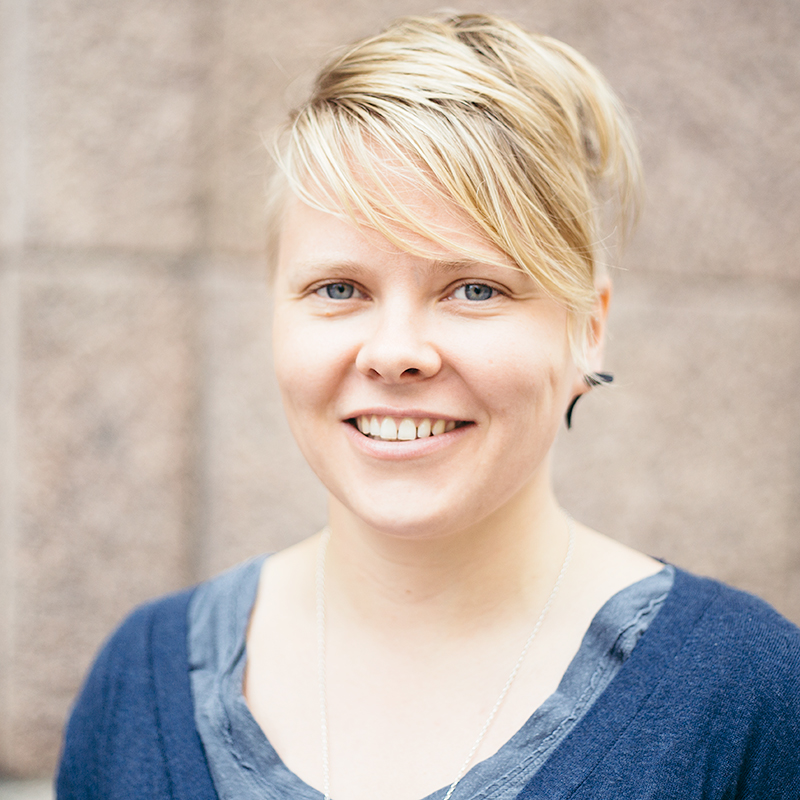

Environments, policies and tools promoting democratic values and a co-creative mindset are prerequisites for democratic learning. Photo credit: Shutterstock
Environments, policies and tools promoting democratic values and a co-creative mindset are prerequisites for democratic learning. Photo credit: Shutterstock
Three educators and innovators introduce their methods for more democratic learning and creating.
In adult education, we can be learning democracy but also be learning in a democratic way. Democratic education shapes participants into active co-creators of their own learning rather than passive recipients of knowledge. Democratic learning contributes to active members of society.
Prerequisites for this are environments, policies and engaging tools that promote democratic values and a co-creative mindset. We introduce three very different type of tools that can help in creating more democratic learning environment and democracy valuing society.
Transformative learning circle (TLC)
Maria Marquard – the Danish coordinator in NVL
The Transformative Learning Circle is a non- and informal learning process, in which participants work collaboratively solving real tasks in their lives. It is a flexible model for increasing the competence of adults in society and the labour market. The teacher’s role is seen as a facilitator who supports the learning processes. Inspired by the Nordic values and tradition for adult learning organised as study circles, TLC was created by NVL, the Nordic Network for Adult Learning.
“TLC is an organic and flexible model that provides empowerment for the participants who take charge of their own learning and tackle real-life problems.
The content in the learning circles comprises interesting and genuine problems that the participants raise for discussion and development. Everyone brings along a personal challenge, for example in their working life.
One of the foundations of democracy is that people come together, learn and tackle tasks.
Participants get new inspiration and insights for solving the challenge through knowledge sharing, co-creating new knowledge and concrete ideas for new actions. Between the circle meetings, the participants try out new actions with colleagues. In the next round of the learning circle, the participants reflect on how the new ideas worked. This way the model aims to promote innovation and a transformative and entrepreneurial mindset.
Learning is responsibility of its participants. It is not about coming to class for information. The teacher of the learning circle is a capable facilitator and has knowledge of the subject. There can also be two teachers with these sets of knowledge divided up.
The model has been used in integration training for migrants, in education with students, with people returning to working life and in the competence development of leaders and adult educators.
One of the foundations of democracy is that people come together, learn and tackle tasks. With TLC, the group develops solutions and ideas together with other group members in a co-creation process. The model also values diversity as a driver.

Photo credit: Shutterstock
People feel recognised when what they say and do have a value and they get to be involved.
In the learning circles, you give a voice to all the participants and you undergo the process of learning together and cocreate. TLC helps the participants to invest their mind in their work, life and local community, and to feel part of it.
If we are right, you will, for example, give people a chance to keep their jobs instead of being dismissed, if they strengthen the skills they need in their work.”
Evaluation of Transformative Learning Circles
Time out
Laura Arikka – Timeout Foundation
Timeout is a dialogue method of generating and having constructive discussions.
Timeout is a facilitated discussion with set ground rules to ensure the constructiveness of the discussion. The method is best used when there is a need to bring different people together and understand the topic from many perspectives. The goal is not unanimity. Timeout rather aims to breed a feeling of inclusion between the participants and of societal inclusion in general.
The Timeout Foundation offers easy-to-follow steps, instructions and tips for the planning and implementation of a constructive discussion, and how to practise facilitating a dialogue.
Timeout can help you understand what the daily lives of other people are like and how their life experiences affect them or society.
“Timeout discussions increase understanding of oneself, others and the world. By listening to the experiences of others and sharing one’s own experiences, one can make connections and realise something new. Timeout can help you understand what the daily lives of other people are like and how their life experiences affect them or society.
During Timeout, it is possible to gather your own thoughts and thereby develop your own learning. The facilitator strives to ensure that the conversation is constructive and equitable, and thereby to promote equality. Special attention is also paid to the invitation process so that the attendees form a diverse group. The more diverse the attendees, the better the opportunity to deepen understanding.
Timeout discussions aim to invite different people to discuss important issues equally and constructively. The theme is often something social that is topical or otherwise divergent, even evoking dividing lines. The aim is to involve people from different backgrounds including non-active people and decision-makers, thereby strengthening people’s experiences of inclusion, and strengthening democracy as more and more people are involved.
Timeout often also showcases the everyday lives and realities of people to the experts and decision-makers involved, which in turn can help them understand the consequences of decisions more deeply. This will also strengthen democratic processes. In addition, in the feedback received, participants often say that the conversation was constructive, increased confidence in other people and provided an opportunity to be heard and seen. Strengthening trust and inclusion is an important part of maintaining and developing democracy.”
www.timeoutdialogue.fi
Simpol
John Bunzl – International Simultaneous Policy Organisation
The Simpol campaign, developed and run by the Simultaneous Policy (SIMPOL) Organisation, educates citizens about democracy in these times of globalism. It also acts as a tool for voters to pressure their leaders to act more strongly on global issues. The problems on Simpol’s agenda are ones no nation can solve alone such as climate change, global health pandemics, mass migration and wealth inequality.
“Simpol is an education process for the democracy of our time. We need to learn about how globalisation has undermined democracy. With globalisation and the free movement of capital, the autonomy of governments has significantly declined. Global issues like climate change, however, cannot be solved by single nations in the globalised era. You must have governance on the same scale as the economy you are trying to govern.

Photo credit: Shutterstock
The campaign aims to get politicians, political parties and all or a sufficient number of governments to sign a pledge to implement a range of policies simultaneously with other governments. Simultaneously implementing a multi-issue, win-win policy agenda would avoid any nation suffering a first-mover competitive disadvantage, so breaking the vicious circle all governments are caught in.
Without cooperation on a global level, democracy at a national level can only continue to decline and be polarised towards the extremes. Improving democracy at a national level depends on nations co-operating globally to ensure that global markets are made democratically accountable, global problems are solved, and multinational corporations are obliged to pay fair taxes. Simpol offers citizens a pragmatic tool to get nations to work together.
The campaign has already caused over 100 UK Members of Parliament from all parties to sign the pledge as well as a growing number of MPs in Ireland, Germany and elsewhere.
Citizens drive the process by joining the campaign. The idea of Simpol is for the national vote to be used on a global level as well by joining the campaign. Simpol would add a new layer to national votes, a way for citizens to make a stronger impact. The policies that the Simpol pledge carries are made over time by citizens. They are not decided on by politicians or the campaign. It is only a way to get these policies implemented.”
www.simpol.org
Author







